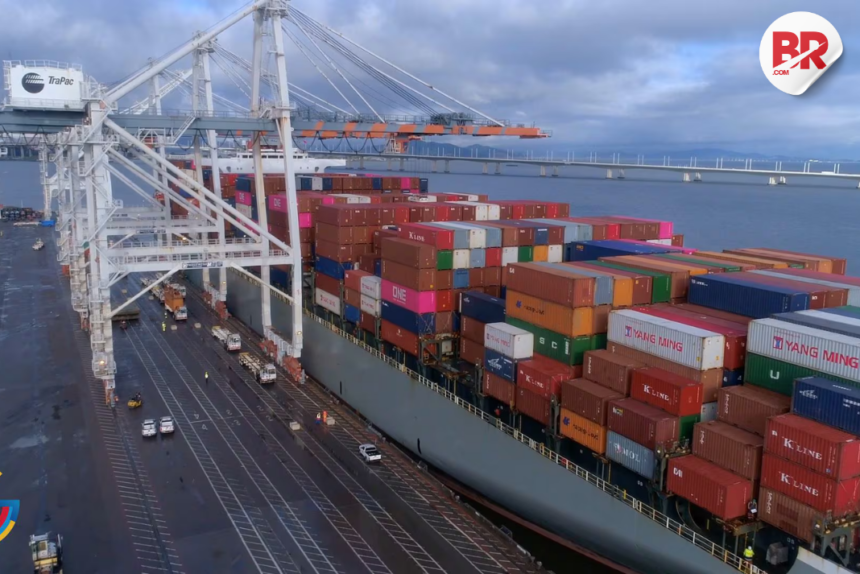
2025 trade tariffs are sending shockwaves through global markets—are you ready for the economic fallout?
Trade tariffs in 2025 have re-emerged as a pivotal factor reshaping global economic dynamics in 2025. As governments around the world adopt unpredictable trade policies, industries face a wave of market volatility. The consequences are wide-reaching, especially for sectors with deeply integrated global supply chains like manufacturing, automotive, and electronics.
The Direct Impact on Global Supply Chains
Sectors like manufacturing and automotive, which depend heavily on cross-border trade, are feeling the squeeze. When tariffs increase, the costs for raw materials and components rise, leading to direct margin compression.

Manufacturers now face higher production costs, which are often passed on to consumers. For instance, automotive companies relying on global supply chains for parts have seen price hikes in the cost of vehicles.
In a study by Partners Group, it was projected that tariff impacts could reduce aggregate EBITDA by 1-3%. While this might seem small on the surface, it can have a significant effect on profit margins for companies operating in tariff-heavy industries.
Private Equity Firms and Exit Strategies
Private equity firms are also adjusting their strategies in response to the tariffs. With transaction activity slowing down, firms are being forced to rethink their exit strategies. According to PitchBook, a key shift has occurred, with private equity firms pivoting toward sectors like healthcare and software—industries less vulnerable to the fluctuations caused by tariffs.
The growing trend of reshoring and geographic diversification has become a strategic response to the increasing uncertainty. By bringing production closer to home or spreading out across different regions, companies can mitigate some of the risks associated with tariff-driven trade policies.
BlackRock advises that diversifying portfolio risk across multiple sectors and regions is an effective way for investors to shield themselves from the unpredictable nature of global trade tariffs.
Also Read: US-China Trade War Escalates: Boeing Becomes Beijing’s Latest Target
Macroeconomic Consequences of Tariffs
The broader economic impact of tariffs is felt across global markets, with countries adjusting their fiscal and monetary policies to offset the effects.
Wharton’s Budget Model forecasted reduced U.S. GDP growth in 2025, primarily due to the uncertainty surrounding trade policies and the overall slowdown in global demand. However, there are some silver linings in this stormy picture.
On the positive side, the tariff-induced pressures have created opportunities for the development of domestic industries, especially in renewable energy.
As countries aim to reduce their dependency on foreign production, we are witnessing the rise of green energy initiatives. The reshoring trend is also encouraging businesses to invest more in local infrastructure and labor, creating jobs and boosting national economies.
In addition, the rise in tariffs has accelerated the adoption of Environmental, Social, and Governance (ESG)-aligned strategies.
Companies now see these frameworks as a way to not only comply with evolving regulations but also to appeal to a growing segment of socially conscious consumers. ESG investments are becoming more attractive, offering a potential buffer against the economic fallout from tariffs.
Also Read: US-China Tech War Explodes: Why America Just Cut Off China’s Access to AI Chips
The Future Outlook of Trade Tariffs
Looking ahead, trade tariffs in 2025 will continue to be a defining factor in the global economy. As policymakers navigate through the complexities of trade relations, companies must remain agile, adapting to changing policies while finding ways to protect their bottom lines.
For sectors deeply impacted by tariffs, embracing innovation and diversification will be crucial. Businesses that can pivot quickly, invest in new technologies, and explore alternative markets will have the best chance of weathering the storm.
In conclusion, while trade tariffs in 2025 pose significant challenges, they also bring opportunities for growth and transformation. As global trade evolves, industries must be prepared to adapt to the ever-changing economic landscape.
Also Read: Biden Condemns Trump for ‘Breathtaking Destruction’ in Fiery Chicago Speech












